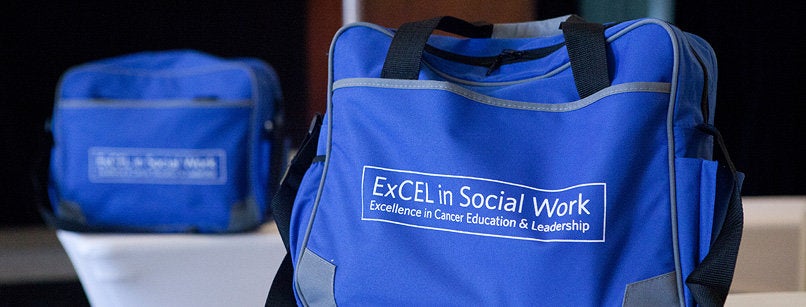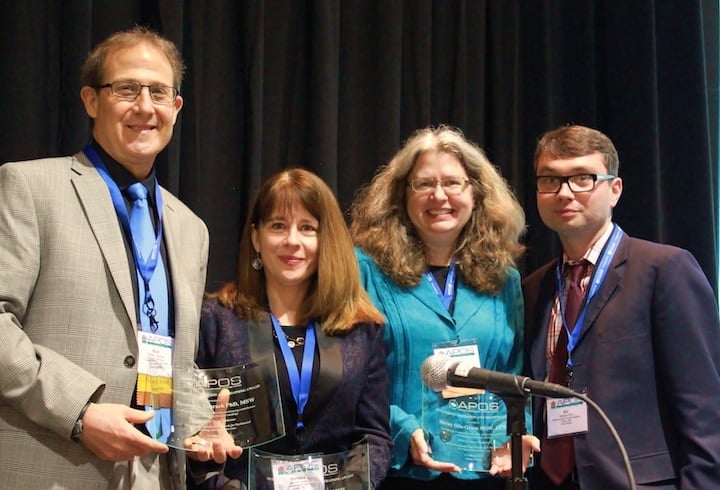Social work professor develops program to provide intensive education to oncology social workers.

One of the world’s experts in pediatric oncology social work, Dr. Barbara Jones has spent the past decade at The University of Texas at Austin School of Social Work teaching future professionals how to support cancer patients and their families through treatment and beyond.
Jones has now taken her passion for educating oncology social workers to a national level, through the Excellence in Cancer Education and Leaderhip (ExCEL) program. ExCEL represents the first time that the National Cancer Institute has funded a social work team to develop national leadership capacity in the field of psychological and social (psychosocial) care of oncology patients.
“ExCEL aligns with Institute of Medicine recommendations for addressing the psychosocial needs of cancer patients and their families,” Jones said. “We know that if not addressed properly, these needs can cause additional suffering, weaken adherence to treatment, and threaten patients’ return to health.”
As one of the co-investigators of the ExCEL project team, Jones has been responsible for developing, directing, and delivering the ExCEL trainings, which focus on issues such as family conferencing and communication, distress screening and assessment, interdisciplinary teamwork, evidence-based informed interventions, and culturally sensitive practice.
 Along with the other co-investigators, Jones has also been responsible for designing the evaluation of these trainings and reporting the findings. The first two manuscripts from this study are currently under review.
Along with the other co-investigators, Jones has also been responsible for designing the evaluation of these trainings and reporting the findings. The first two manuscripts from this study are currently under review.
Participants to ExCEL trainings are selected through a competitive process. Since 2010, the program has trained over four hundred social workers from across the United States plus five other countries.
“We went through great examples of how social workers in the treatment team work with the whole family,” said Caren Heilman, a pediatric oncology social worker at Dell Children’s Medical Center in Austin, and a participant in the first ExCEL training in May 2011. “Discussing interdisciplinary teamwork, that is, how to work with nurses and doctors, was also very helpful. As social workers, we not only have to advocate for patients and families, but we also have to advocate for our own role on the treatment team.”

ExCEL also has the goal of encouraging oncology social workers to become more effective agents of system change. To this end, participants are provided with mentorship to develop an enhancement goal for their institutions, to be implemented during the twelve months following participation in the program.
For instance, one ExCEL participant developed standardized, scripted patient scenarios involving social worker interactions with the patient, family, and treatment team. Her institution’s program for palliative care in cancer will use these scenarios to train medical, nursing, social work, and clinical pastoral care students.
In 2014, the American Psychosocial Oncology Society (APOS) recognized the program’s positive impact with an Outstanding Training and Education Award to ExCEL leaders, including Jones.
“We are very proud of ExCEL’s success,” Jones said. “We are training the next generation of oncology social workers, and creating new, patient-centered models to improve the quality of care for individuals facing cancer and their families.”
Posted July 21, 2014. By M. Andrea Campetella. Photo credit: “One child with cancer is too many,” by Ron Sombilon under Creative Commons Attribution 2.0.

